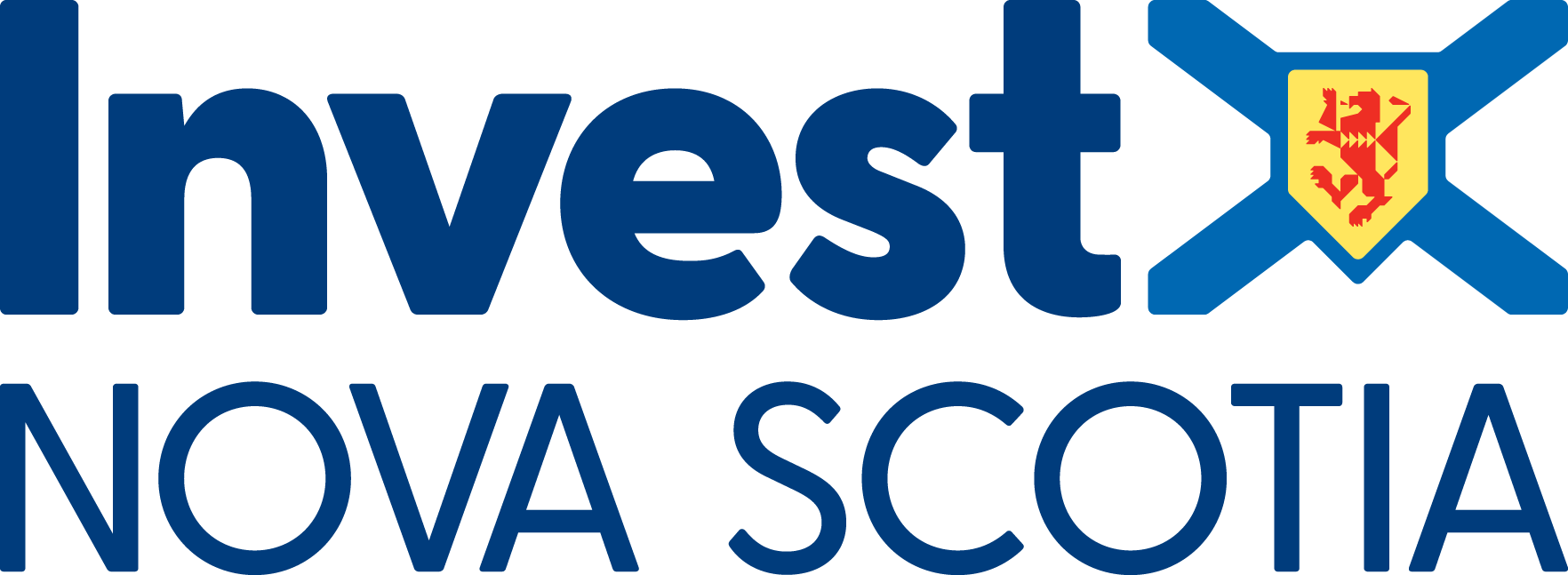5 Industry Trends Shaping Business in 2024
Monday, January 22, 2024
Another year has come and gone, and the team here at Invest Nova Scotia is turning an eye and ear to what's in store for 2024.
As a business development agency for the province, we work to support the growth and momentum of Nova Scotia businesses of all stages and sizes, while also welcoming companies from elsewhere to join us here. So, it’s no surprise that spotting upcoming business opportunities is a top priority for our team. Here are five notable industry trends emerging in 2024.
According to a recent study by BDC, nearly every major corporation mandates ESG reporting from their suppliers, so ESG is no longer a ‘nice to have’.
1. ESG Requirements
Sustainability continues to be a key topic and is evolving beyond environmental initiatives. BDC projects that in 2024, 92% of companies will mandate their suppliers to disclose at least one Environmental, Social and Governance (ESG) criterion, a framework used to assess a company’s operational performance as it relates to its societal and environmental footprint[1].
Although ESG ratings are not currently standardized or mandatory in Canada, companies who prepare for reporting requirements will come out ahead. Disclosures may include climate-related risks and greenhouse gas (GHG) emissions, diversity and inclusion initiatives, ethical business model structure and operations, etc[2]. Find a full list of relevant areas of focus here, outlined by PwC.
According to a recent study by BDC, nearly every major corporation mandates ESG reporting from their suppliers, so ESG is no longer a ‘nice to have’[3]. The failure of businesses to meet these requirements may result in missed opportunities to secure significant funding and contracts.
To gauge whether your business is meeting ESG criteria, review the B Corps (Certified Beneficial Corporations) assessment quiz and the Canadian Centre for Diversity and Inclusion toolkits. Use these resources to understand your company’s current rank and identify areas for improvement.
2. An Agile Supply Chain
A global economic slowdown, anticipated in Q1 2024, is expected to have a ripple effect on regulatory and trade policy arrangements, impacting international operations[4]. But a strong, agile supply chain can still succeed through diversification, AI (Artificial Intelligence) advancements, and contingency planning to counter potential disruptions.
Expanding into emerging markets will aid diversification and stability, but not without inherent risks. Before doing business abroad, connect with a Regional Business Development Advisor to review the latest information on trade regulations, certifications, and market viability. The Market Entry Development Program can assist with developing a company-specific export approach, based on expertise and connections of in-market consultants, for expanding market presence in countries where trade agreements with Canada already exist.
Staying ahead of AI and tech developments in the supply chain management space will also contribute to an ever-increasing competitive advantage. KPMG notes that the shift toward a digitally organized 'smart supply chain' model is now pivotal for the shipment and tracking of goods and services[5]. To help your business keep pace, Invest Nova Scotia offers FITTSkills courses on several topics tailored to assist exporters in navigating the global supply chain.
Lastly, conducting risk assessments and developing contingency plans are essential to mitigating disruptions caused by unforeseen global events or geopolitical tensions. Using resources like Economic Development Canada’s (EDC) Country Risk Quarterly to assess the volatility of a landscape before completing contracts can help companies operate more effectively.
Harvard Business Review notes that, as of May 2023, Canada has one of the highest rates of remote work in the world, and employees like it.
3. Workforce Retention
Although workforce shortages in specific sectors continue, and the need for skilled workers remains high, the state of the economy may cause some companies to cut back their hiring plans for 2024[6]. Workers are likely to stay put or seek higher salaried roles to weather inflation and a potential recession. So how can your company retain top talent?
Consider ‘quiet hiring,’ an approach gaining momentum that advocates for internal talent mobility[7]. By offering upskill opportunities and clear paths to career progression, companies can hire from within rather than seek external candidates. McKinsey & Company also suggests that organizations align their top talent with roles of the highest value, as a portion of crucial positions often lack the most suitable candidates[8]. This strategy is cost-effective, minimizes onboarding efforts, maximizes productivity, and can enhance both morale and loyalty.
Maintaining the hybrid work environment can also prove beneficial, with companies choosing to invest in long-term strategies and policies. Harvard Business Review notes that, as of May 2023, Canada has one of the highest rates of remote work in the world, and employees like it[9]. Businesses contemplating a full-time return to the office should explore a hybrid model that strikes the right balance between in-person and remote work. Be sure to establish structure and provide support, especially related to determining what tasks are best suited for in-person and what is most appropriate for a remote setting.
For assistance with human resource best practices, Invest Nova Scotia’s collaboration with Sympli Works offers free on-demand courses that fit your schedule.
4. AI Implementation
AI has been around for decades, but the progression of generative AI technology (specifically ChatGPT) has begun to transform the landscape of work, with powerful capabilities to optimize performance across various business operations. How can your company leverage AI to help your bottom line?
AI implementation starts with getting familiar with AI predictive applications. There are endless use cases, but not all may be needed or feasible within your current organization. From automating administrative tasks, to face recognition, robotics, fraud detection, and drafting marketing messages, each company needs to review its structure and processes and assess the options available. For some useful AI tools to get started, check out this Forbes article: '20 AI Tools To Supercharge Your Business And Productivity.'
List what problems your company is experiencing, and how AI could help. The goal is to augment daily tasks to maximize your workforce and increase everyone’s output, not replace jobs. Be transparent with your employees about your plans to incorporate AI into the workflow (which may need to be adjusted to accommodate the shift), establish trust and ensure staff feel comfortable with the transition. For practical use cases, Harvard Business Review's 'How to Lead and Reskill in the Age of AI' video can help.
Data safety and cybersecurity should also be top of mind. If you don’t have internal resources, seek out specialists in the field to provide guidance. The Canada Digital Adoption Program offers funding to qualifying companies to aid with acquiring cyber security tools and digital transformation.
Discretionary spending is ‘in’ for 2024, characterized by consuming and owning less. Companies need to be creative and agile while ensuring the financial stability of their enterprises.
5. Cautious Consumer Behaviour
The BDC predicts consumers will be more cautious in 2024, leading to weaker customer demand[10]. As Covid financial assistance runs dry, inflationary pressures increase, and overall debt weighs on the budget of the average Canadian - consumers are set to seek out lower-cost items. But not at the expense of the environment or social good.
Increased consumer awareness and the demand for transparency have risen in recent years, challenging greenwashing and social washing attempts by major corporations. This shift has impacted purchasing behaviours, favouring products and services from companies that engage in sustainability, social responsibility, and ethical governance. Businesses that take the initiative to incorporate authentic action into their organizational structure and aim to be good corporate citizens will see the benefits.
But overall, discretionary spending is ‘in’ for 2024, characterized by consuming and owning less. Companies need to be creative and agile while ensuring the financial stability of their enterprises. For a deeper dive into consumer behaviour, EY’s Future Consumer Index explores the emerging priorities shaping future consumption patterns.
Need help on how to navigate the projected opportunities and challenges of 2024? Reach out to Invest Nova Scotia’s Regional Business Development Team, and get guidance from our Trade Market Intelligence services.
To remain up to date on 2024's trends as they evolve, sign up for our newsletter – the Insider – and follow Invest Nova Scotia on LinkedIn, Instagram, and Facebook.
[1] BDC, 2023. “ESG in Your Business: The Edge You Need to Land Large Contracts”.
[2] PwC, 2023. “How to measure your ESG performance”.
[3] BDC, 2023. “Small businesses left out of big contracts without ESG reporting: BDC study”.
[4] S&P, 2023. “Economic Outlook Canada Q1 2024: Growth Is Set To Continue Slowing”.
[5] KPMG, 2023. “Supply chain trends 2024: The digital shake-up".
[6] Hiring Lab, 2023. “Indeed 2024 Canada Jobs and Hiring Trends Report: Trying To Hold On”.
[7] Forbes, 2023. “Get Ready For Quiet Hiring–Here’s What Employers Need To Understand”.
[8] McKinsey & Company, 2023. “The State of Organizations 2023”.
[9] HBR, 2023. “Survey: Remote Work Isn’t Going Away — and Executives Know It”.
[10] BDC, 2023. "Canadian economic outlook for 2024: Shifting into neutral".





